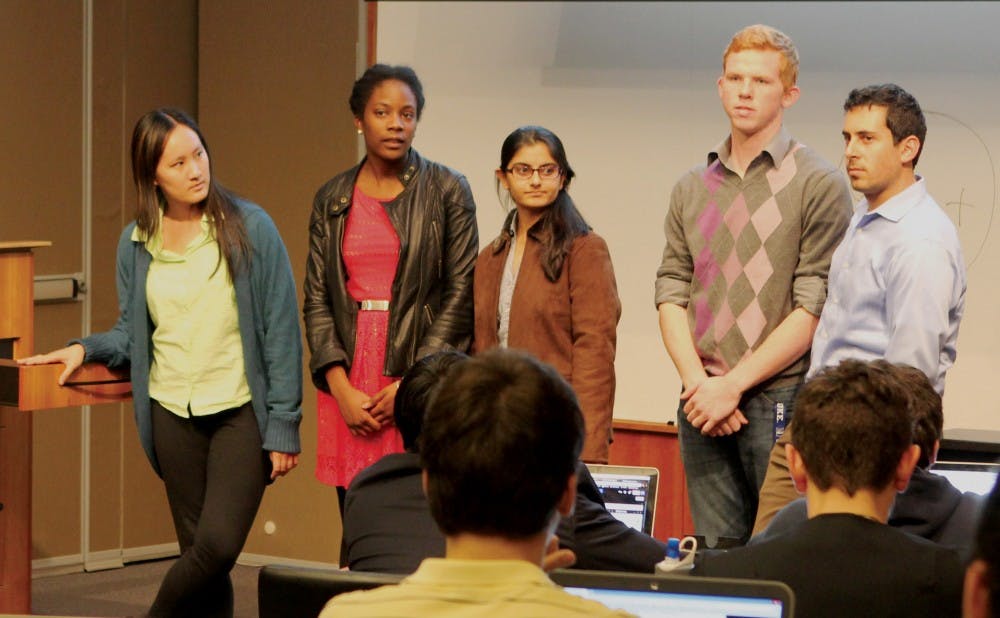The Duke Student Government Senate denied a $602 request from the Duke Ethics Bowl Team at their meeting Wednesday evening.
The team requested the funding to compete in the Association for Practical and Professional Ethics’ Mid-Atlantic Regional Competition Nov. 9. Duke Ethics Bowl founder, junior Ben Hand-Bender, said that the bowl is an important way for students to interact with “applied ethics” in an academic competition.
“This is a question of how ethics should exist and be applied in very real life circumstances,” Hand-Bender said.
Because the eight-member team is new this year and has inconsistent membership between competitions, traditional methods of requesting funding through the Student Organization Finance Committee were not appropriate, Hand-Bender said.
Hand-Bender said that the Kenan Institute for Ethics has been unable to provide funding due to its shortcomings as a bureaucracy.
Senior Patrick Oathout, senator for services, motioned for a suspension of the senate's rules to introduce legislation for the request.
“Not only did this group not go before SOFC, but they never had the opportunity to go before SOFC and they never will have the opportunity to go before SOFC,” Oathout said. “I realized that there is a bureaucratic hurdle here.”
He noted that under current SOFC guidelines, groups with fewer than 10 members cannot receive funding.
Sophomore Abhi Sanka, senator for residential life, questioned if the group should find two more members before asking for funding.
“What I appreciate about this group is that they were very authentic,” Oathout said, noting that the group did not ask unaffiliated students to sign the group roster to falsely boost the number of members.
Junior Joyce Lau, chair of SOFC, said that the group would likely not have time to receive funding through their channels in time for the Bowl competition.
Some senators raised concerns about depleting the legislative discretionary fund—the total of which executive vice president Nikolai Doytchinov, a junior, did not know.
“That’s the thing with DSG funding, whatever you spend on one thing, you can't spend on another,” said junior Jacob Zionce, vice president for residential life.
President Stefani Jones, a senior, said she was not comfortable with funding requests from unofficial student groups.
“If DSG allocated money to a student group, we are 100 percent legally liable for anything that happens at this tournament,” Jones said.
The legislation was defeated.
In other business:
Five nominees were confirmed to the Financial Aid Advisory Committee. They were selected from a total of nine applicants.
The committee serves to represent student interests in the financial aid process.
“Soon we will begin meeting with our financial aid office to begin discussing the things that we can advise them on,” said sophomore Michael Pelle, senator for equity and outreach.
Lau presented the guidelines for funding official student groups.
Among other rules, Lau highlighted the requests that SOFC commonly receives but cannot fund—including those for general body meetings, tee-shirts, sunglasses, alcohol, decorations and giveaways.
The Standard—a digital platform that showcases the diversity of student life—gained status as a chartered group.
Get The Chronicle straight to your inbox
Signup for our weekly newsletter. Cancel at any time.

